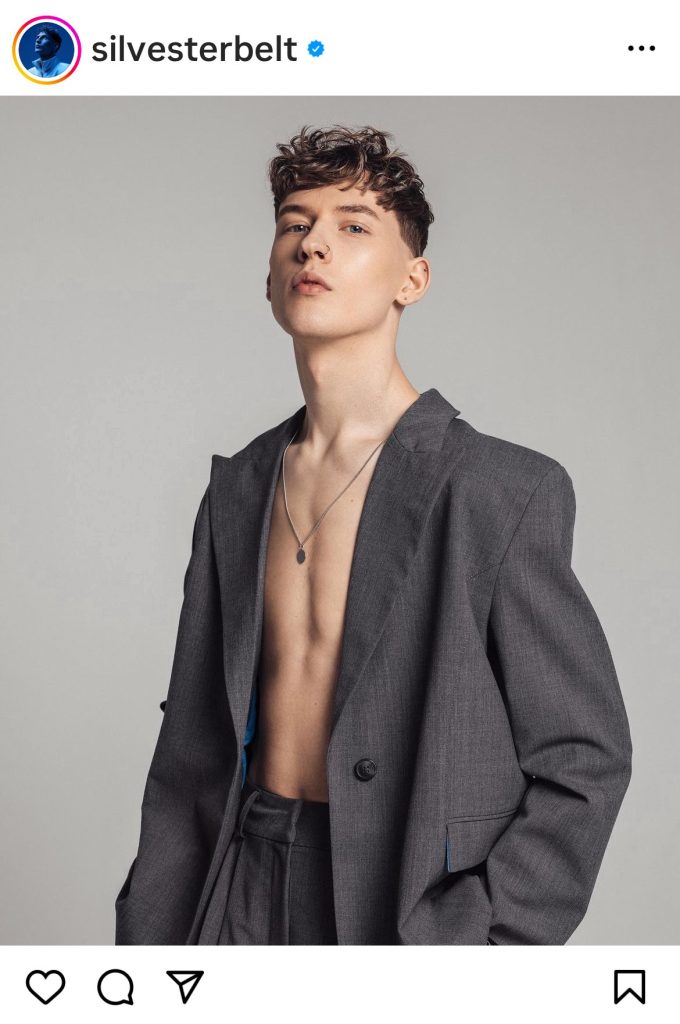Silvester Belt is buzzing through the Eurovision Song Contest circles this year, not just for his hypnotic eurobanger “Luktelk,” but for making history as the first openly LGBTQ+ artist to represent Lithuania in the competition. With over five million Spotify streams worldwide and dominating the Lithuanian charts, Belt’s musical influence is undeniable. But it’s his outspoken nature and advocacy for LGBTQ+ visibility that’s capturing hearts beyond the music.
Belt’s journey to Eurovision is as much about talent as it is about bravery. From his early days as a 12-year-old finalist in Lithuania’s preselection for the Junior Eurovision Song Contest to winning the music show Aš – superhitas in 2017, Belt has consistently risen above challenges. Yet, despite his success, he has confronted significant resistance and homophobia within Lithuania—a country where being out and proud carries substantial risks.
Discussing the sparse LGBTQ+ representation in Lithuania’s music scene with PinkNews, Belt expressed frustration, highlighting the prevalent culture of fear among artists. He noted, “Everyone is pretending to be what they’re not, and it p***es me off so much.” This culture stems partly from legal and societal pressures; same-sex marriage remains illegal in Lithuania, and a 2020 survey revealed that 60% of LGBTQ+ Lithuanians never disclose their identity publicly.
Despite these challenges, Belt’s appearance at Eurovision as an out bisexual man is a significant step towards change. His candidness about his identity is a refreshing departure from the norm. He likens being open about one’s sexuality to stating a simple fact, like having blue eyes, and insists it shouldn’t be relegated to the realm of the private or taboo.
Related: Olly Alexander Asked to Withdraw from Eurovision
At Eurovision, Belt has found solidarity with other LGBTQ+ artists, forging what he calls his “LGBTQ+ gang,” which includes notables like the UK’s Olly Alexander and Ireland’s Bambie Thug. This support network has turned the competition into a safer and more welcoming space for him, illustrating the power of community.
Belt doesn’t aim to be a poster child for LGBTQ+ representation, but he recognizes the impact of his visibility. “As much as I’m probably gonna trigger a lot of people with just my being, I feel like at the same time, it is a big thing for the rest of us,” he shared. For many young LGBTQ+ individuals in Lithuania and beyond, seeing Belt on such a prominent platform offers hope and encouragement—a sentiment that can spark much-needed conversations and, ideally, foster acceptance.
As Eurovision 2024 approaches, with Belt set to perform in the first semi-final on May 7, all eyes will be on him—not just for his musical performance but for his role in advancing LGBTQ+ visibility on an international stage. His journey is a vivid illustration of the challenges and triumphs faced by LGBTQ+ artists globally, and a reminder of the transformative power of representation in popular culture.

Related: Olly Alexander: Shining Bright on Eurovision